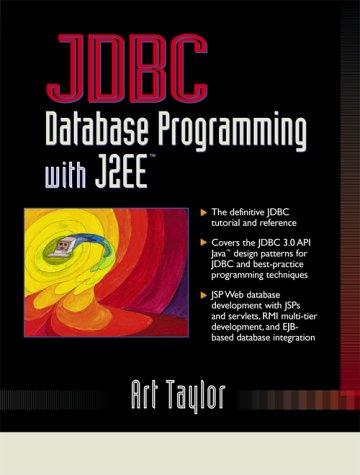Question
***Seeking help for JAVA date difference *** I am having troubles calculating the time difference - instructions and my code is below - thanks. Create
***Seeking help for JAVA date difference ***
I am having troubles calculating the time difference - instructions and my code is below - thanks.
Create a program that reads the files: date_diff.csv. The program should read all of the records and calculate the number of days between the two dates and print out the number of days, and then translate it into years, months and days. When the file is finished, list the number of dates that start in each month with the number.
*******
date_diff.csv file found here - https://github.com/tempUser00/temp
******
Input
8-May-93,Sep. 24, 2013
Feb. 8, 1989,Feb. 1, 1991
Feb. 27, 2006,Nov. 3, 2015
Output
Days . Years, Months, Days
7444 20, 4, 16
723 1, 11, 24
3536 9, 8, 7
===============
Apr 17
Aug 18
Dec 19
Main
----------------------
package unit2collections; import java.text.DateFormat; import java.util.Date; import java.util.GregorianCalendar; import java.util.HashMap; import java.util.Map; public class Main { // List of IO methods (input/output) private final static fileInput dateDiff = new fileInput ("date_diff.csv"); private final static Map map = new HashMap(); private final static fileOuput output = new fileOuput("output.txt");/// also create the object first public static void main(String[] args){ String line; String[] words; Object wordFound; // Today's date Date today = new Date(); long diff = today.getTime() - dateDiff(); System.out.println((diff / (1000 * 60 * 60 * 24)) + " days old."); DateFormat formatter = DateFormat.getDateTimeInstance(DateFormat.LONG); String(long timeDifferenceMilliseconds) { long diffSeconds = timeDifferenceMilliseconds / 1000; long diffMinutes = timeDifferenceMilliseconds / (60 * 1000); long diffHours = timeDifferenceMilliseconds / (60 * 60 * 1000); long diffDays = timeDifferenceMilliseconds / (60 * 60 * 1000 * 24); long diffWeeks = timeDifferenceMilliseconds / (60 * 60 * 1000 * 24 * 7); long diffMonths = (long) (timeDifferenceMilliseconds / (60 * 60 * 1000 * 24 * 30.41666666)); long diffYears = timeDifferenceMilliseconds / ((long)60 * 60 * 1000 * 24 * 365); if (diffSeconds < 1) { return "less than a second"; } else if (diffMinutes < 1) { return diffSeconds + " seconds"; } else if (diffHours < 1) { return diffMinutes + " minutes"; } else if (diffDays < 1) { return diffHours + " hours"; } else if (diffWeeks < 1) { return diffDays + " days"; } else if (diffMonths < 1) { return diffWeeks + " weeks"; } else if (diffYears < 1) { return diffMonths + " months"; } else { return diffYears + " years"; } } System.out.println(formatter.format(dateDiff)); System.out.println("Days Years Months Days"); System.out.println("======== ======= ======= ======== "); for (Map.Entry entry : dateDiff.entrySet()) { System.out.println(entry.getKey() + "" + entry.getValue()); output.fileWrite(entry.getKey() + "" + entry.getValue()); } output.fileClose(); } } fileInput
-----------------
package unit2collections; import java.text.DateFormat; import java.util.Date; import java.util.GregorianCalendar; import java.util.HashMap; import java.util.Map; public class Main { // List of IO methods (input/output) private final static fileInput dateDiff = new fileInput ("date_diff.csv"); private final static Map map = new HashMap(); private final static fileOuput output = new fileOuput("output.txt");/// also create the object first public static void main(String[] args){ String line; String[] words; Object wordFound; /** Today's date */ Date today = new Date(); long diff = today.getTime() - dateDiff(); System.out.println((diff / (1000 * 60 * 60 * 24)) + " days old."); DateFormat formatter = DateFormat.getDateTimeInstance(DateFormat.LONG); System.out.println(formatter.format(dateDiff)); // date_diff.csv file here (read data) while ((line = dateDiff.fileReadLine()) != null) { words = line.split(","); wordFound = map.get(words[0]); if (wordFound == null) { map.put(words[0], new locationStuff(1)); } else { locationStuff locationStuff = ((locationStuff) map.get(words[0])); locationStuff.incrementStuff(); map.put(words[0], locationStuff); } } System.out.println("Days Years Months Days"); System.out.println("======== ======= ======= ======== "); for (Map.Entry entry : dateDiff.entrySet()) { System.out.println(entry.getKey() + "" + entry.getValue()); output.fileWrite(entry.getKey() + "" + entry.getValue()); } output.fileClose(); } } fileOutput
-------------------
package unit2collections; import java.io.*; //This class is used to write output to a file public class fileOuput { Writer out = null; private String fileName; public fileOuput(String filename) { this.fileName = filename; try { //FileOutputStream class is used to direct output to a file out = new BufferedWriter(new OutputStreamWriter(new FileOutputStream(fileName))); } catch (FileNotFoundException e) { System.out.println("Error, cannot open file: " + fileName + " " + e); } } public void fileWrite(String line) { //Writes output to a file line by line try { out.write(line + " "); } catch (Exception e) { System.out.println("Error, cannot open file: " + fileName + " " + e); } } public void fileClose() { //To safely close the file if (out != null) { try { out.close(); } catch (IOException e) { e.printStackTrace(); } } } } locationStuff
----------------------
package unit2collections; public class locationStuff { public int cities; public int stuff; public locationStuff(int city) { this.cities = city; } public int getCity() { return cities; } public void incrementCity() { cities++; } public int getStuff() { return stuff; } public void incrementStuff() { stuff++; } @Override public String toString(){ return String.valueOf("" + getCity() + " " + getStuff()); } } Step by Step Solution
There are 3 Steps involved in it
Step: 1

Get Instant Access to Expert-Tailored Solutions
See step-by-step solutions with expert insights and AI powered tools for academic success
Step: 2

Step: 3

Ace Your Homework with AI
Get the answers you need in no time with our AI-driven, step-by-step assistance
Get Started


